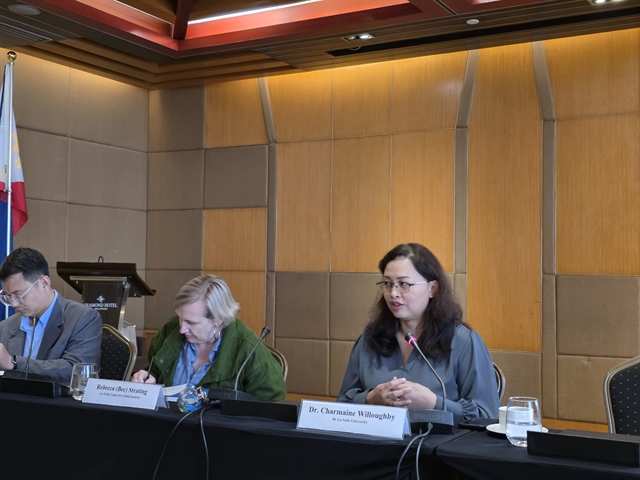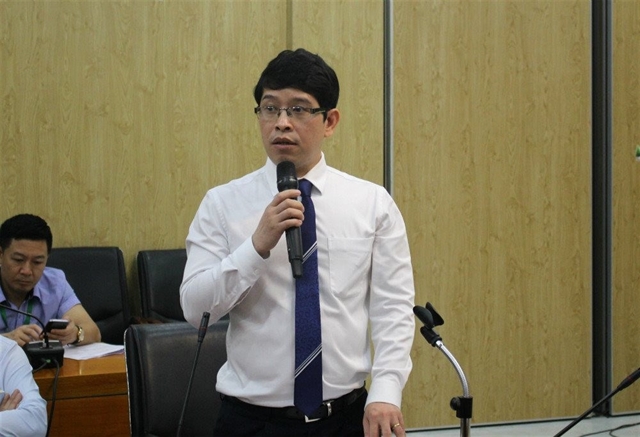 Opinion
Opinion

 |
| Director of the Institute of Strategy and Policy on Natural Resources and Environment Nguyễn Đình Thọ. — Photo baotainguyenmoitruong.vn |
Director of the Institute of Strategy and Policy on Natural Resources and Environment Nguyễn Đình Thọ talks to Vietnam News Agency about measures to implement the country's commitments at COP26 and call for equity in energy transition and gas emission reduction.
What are commitments of Việt Nam at the UN Climate Change Conference (COP26) and how have other countries evaluated those commitments?
Leaders of 124 countries and 40,000 delegates from member countries attended the COP 26. Việt Nam, together with other countries, made strong commitments relating to climate changes. Specifically, 147 countries committed net zero carbon emissions by 2050 and 103 countries committed to reduce methane emissions by 30 per cent by 2030.
Besides, 50 countries committed for conversion of fossil fuels to renewable energies and 25 organisations pledged to provide financial support for those commitments.
At the COP26, many countries appreciated Việt Nam's commitment of net zero carbon emissions by 2050. The Vietnamese Government is taking measures to implement these commitments.
How do you think about the possibility to implement Việt Nam's commitments at the COP26 and what are the roadmaps and specific goals set to fulfil the commitments?
Right after the COP26 ended, the Vietnamese Government built a master plan to implement the country's commitments and has actively carried out the plan.
Focuses are made on synchronising related mechanisms, policies and laws to encourage the implementation of solutions put forth at the COP26, moving from the use of fossil fuels to renewable energies and reducing greenhouse gas emissions in all fields, particularly transport with plans to put into use electric vehicles before 2040 as committed at the COP26.
How will the development of bio-industrial zones in Việt Nam contribute to implementing the country's commitments of net zero carbon emissions by 2050?
The industrial sector takes the lead in consuming energies. Việt Nam's commitments at the COP26 focus on energy, transport, industry, agriculture, waste treatment and changes in land and forest use purposes.
Therefore, the development of bio-industrial parks will play a decisive role in whether we could fulfil the targets of reducing carbon emissions following a roadmap towards 2030 and then the goal of net zero emissions by 2050.
Currently, Việt Nam is taking measures to fulfil the goal of development of bio-industrial parks, particularly in land use planning. Industrial zones will be required to meet requirements for bio-industrial parks, ensuring that carbon emissions at these parks will meet national standard and plans.
What is the main topic of the COP27 which was held in Egypt last week and what are Việt Nam's commitments at this conference?
The main topic of the COP27 is "From Commitments to Action". Building on the outcomes and momentum of COP26, nations were expected to demonstrate at COP27 that they are in a new era of implementation by turning their commitments into action.
One of the most important contents that the COP27 heads towards is justice and equality in energy transition and gas emission reduction to net zero in the future.
Việt Nam is focusing on negotiation content with G7 countries in commitment of energy transition equality. Developed countries in the world account for 44 per cent of the total amount of global greenhouse gas emissions and 14 per cent of the world population. So urging developing and under developed countries to cut the same amount of gas emissions is a big requirement.
Discussions at the COP27 aimed to achieve justice and equality in climate change adaptation, in reducing greenhouse gas emissions and in responsibilities of countries for supporting other nations that suffer severe impacts from climate changes and natural disasters.
At the COP21, countries in the world committed to provide financial support worth US$100 billion each year to implement the targets of climate change adaptation and greenhouse gas emissions. However, in fact, developed countries failed to implement their commitments in 2020 and 2021.
At the COP27, Việt Nam wished that developed countries and other countries in the world will fulfil their commitments. — VNS




